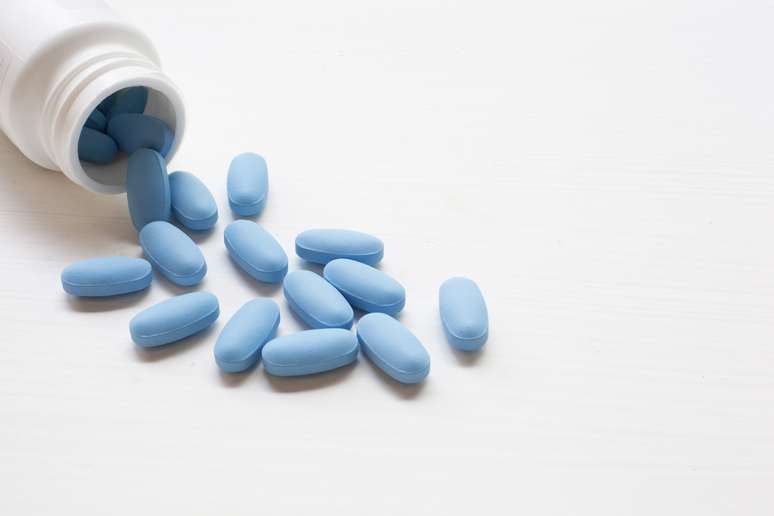The sooner the person reaches health services and begins prophylaxis, the better, but a maximum window of 72 hours should not be exceeded.
Brazilian influencer Fernanda Santos, the victim of a gang rape last weekend in India, had to undergo emergency medical treatment at a local hospital to prevent a number of health risks caused by sexual violence.
Immediate treatment is needed for this type of aggression, still so widespread in the world and also here in Brazil, where every 8 minutes a woman or girl is a victim of rape, according to 2023 data from the Agency Brazilian Public Security Forum.
Fernanda and her Spanish husband Vicente Barbera profile their world travels (@vueltaalmundoenmoto) and had been traveling around India on a motorcycle for six months. They were attacked by a group of seven men while they were camping in Dumka district, in the Jharkhand region, near the border with Bangladesh. The criminals beat and robbed the couple and raped the influencer.

Window for intervention
When an incident of rape occurs, the victim must receive prompt medical attention to reduce the risk of an unwanted pregnancy and a variety of infections that can be sexually transmitted. The sooner the person reaches health services and begins prophylaxis, the better, but a maximum window of 72 hours (3 days) should not be exceeded.
Upon arrival at the hospital or emergency room, the victim should be given emergency contraception and will begin taking PEP (post-exposure prophylaxis), a combination of antivirals that prevents infection with the HIV virus, which causes AIDS . Additionally, you will be treated with antibiotics to prevent the most common sexually transmitted infections (STIs) such as syphilis, gonorrhea, chlamydia and trichomonas. If the person has not yet completed the hepatitis B vaccination program, this form of prevention should also be started.
In addition to medications and other clinical support measures, the victim must receive treatment from social work and mental health professionals. Medical assistance can be initiated regardless of whether the person has contacted the authorities to register a police report (BO), but the hospital must offer all necessary guidance so that this measure can be implemented. It may also be necessary to collect material to identify the attacker’s DNA.
Treatment protocols for victims of sexual violence may vary slightly from one health service to another, but they comply with guidelines and technical standards of the Ministries of Health and Justice. For children under 18 there are specific clinical recommendations, as well as the obligation to report to the police and report to the Protection Council.

Fear and shame make access difficult
It is important to remember that in a culture that still condemns women victims of rape to so much violence and prejudice, it is not uncommon that, for fear of judgment and criticism or even fear or shame, many of them do not go to the station police nor medical care, making them much more vulnerable to unwanted pregnancy and a host of health problems, not to mention the brutal impact on their lives and mental health.
If you are close to someone who has suffered any form of sexual violence, offer support and work as part of a support network that ensures the person reaches health services and calls on the authorities to report the perpetrator.
The service and support does not end with this first contact with the health service. It is essential that the person returns to continue both medical care, such as serological tests, the use of complementary treatments and the application of other doses of vaccines, and his mental health.
Taking care of emotions is central. In addition to humanized care from the first visit, which makes the person feel more protected and welcomed, it is essential that they continue to receive support from a mental health professional.
An episode of sexual violence is always very traumatic. Post-traumatic stress, generalized anxiety, panic attacks, as well as depressive symptoms can profoundly alter the victim’s life. Therefore, taking care of mental health should be a permanent focus of attention.
To conclude, this March 8th, International Women’s Daycannot emphasize enough the importance of implementing urgent measures to end this growing cycle of violence, as well as the importance of quality, rapid, empathetic and welcoming care for all women, everywhere in the country.
*Jairo Bouer is a psychiatrist and writes weekly for Terra Você.
Source: Terra
Ben Stock is a lifestyle journalist and author at Gossipify. He writes about topics such as health, wellness, travel, food and home decor. He provides practical advice and inspiration to improve well-being, keeps readers up to date with latest lifestyle news and trends, known for his engaging writing style, in-depth analysis and unique perspectives.





![Un Si Grand Soleil preview: Thursday, October 23, 2025 episode recap [SPOILERS] Un Si Grand Soleil preview: Thursday, October 23, 2025 episode recap [SPOILERS]](https://fr.web.img6.acsta.net/img/12/a9/12a96513d7a4f6120d33b7120427505f.jpg)


